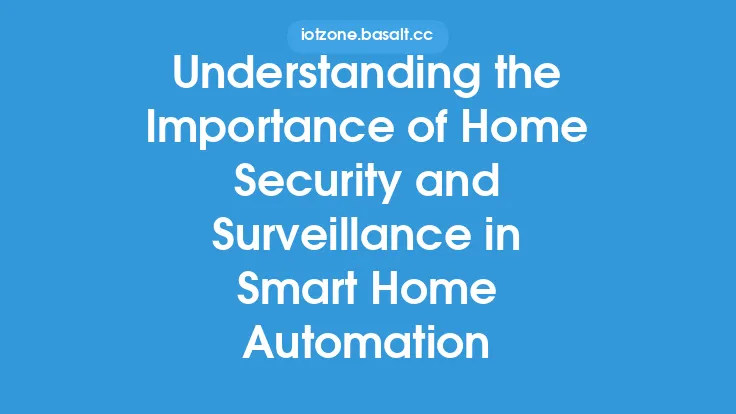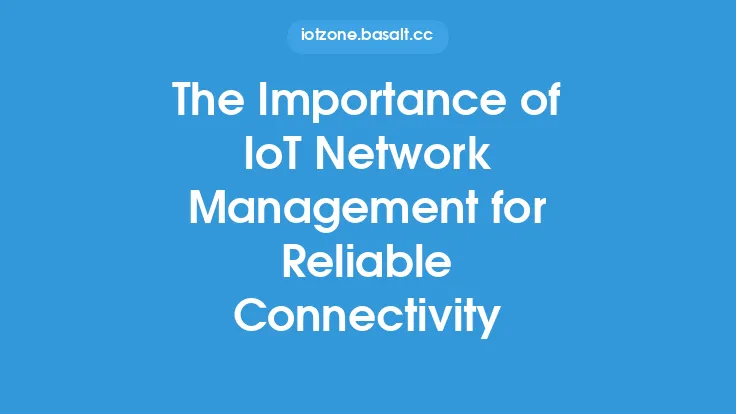Reliable internet is the backbone of any smart home system, enabling seamless communication and control between devices, sensors, and the central hub or controller. Without a stable and fast internet connection, smart home devices cannot function optimally, leading to frustration, inconvenience, and a diminished user experience. In this article, we will delve into the importance of reliable internet for smart home devices, exploring the technical aspects, benefits, and best practices for ensuring a robust and efficient smart home network.
Introduction to Smart Home Networking
Smart home devices rely on internet connectivity to operate effectively, sending and receiving data to and from the cloud, other devices, or the central hub. This data exchange enables features such as remote monitoring, voice control, and automation, which are the hallmark of smart home technology. A reliable internet connection ensures that devices can communicate with each other and the outside world, facilitating a wide range of smart home applications, from lighting and temperature control to security and entertainment systems.
The Impact of Internet Reliability on Smart Home Devices
The reliability of internet connectivity has a direct impact on the performance and functionality of smart home devices. A stable internet connection ensures that devices can respond quickly to commands, updates, and changes, while a slow or unstable connection can lead to delays, errors, and frustration. For example, a smart thermostat that cannot connect to the internet may not be able to learn a user's schedule and preferences, failing to optimize heating and cooling settings. Similarly, a security camera that experiences frequent disconnections may not be able to send alerts or stream video feeds, compromising home security.
Technical Requirements for Reliable Internet
To ensure reliable internet for smart home devices, several technical requirements must be met. These include:
- Bandwidth: A minimum bandwidth of 100 Mbps is recommended for smart home devices, although this may vary depending on the number of devices and applications.
- Latency: Low latency is essential for real-time applications, such as voice control and video streaming. A latency of less than 50 ms is recommended.
- Packet loss: Packet loss can cause errors, delays, and disconnections. A packet loss of less than 1% is recommended.
- Jitter: Jitter can cause delays and errors in real-time applications. A jitter of less than 10 ms is recommended.
- Quality of Service (QoS): QoS ensures that critical applications, such as security and voice control, receive priority bandwidth and resources.
Benefits of Reliable Internet for Smart Home Devices
The benefits of reliable internet for smart home devices are numerous and significant. These include:
- Enhanced user experience: Reliable internet ensures that devices respond quickly and efficiently to commands and changes.
- Increased convenience: With reliable internet, users can control and monitor their smart home devices remotely, using their smartphones or voice assistants.
- Improved safety and security: Reliable internet enables real-time monitoring and alerts, ensuring that users are notified of potential security threats or issues.
- Energy efficiency: Reliable internet enables smart home devices to optimize energy consumption, reducing waste and saving users money.
Best Practices for Ensuring Reliable Internet
To ensure reliable internet for smart home devices, several best practices can be followed. These include:
- Choose a reputable internet service provider (ISP): Select an ISP that offers fast, reliable, and secure internet connectivity.
- Use a high-quality router: Invest in a high-quality router that can handle the demands of smart home devices.
- Optimize network configuration: Configure the network to prioritize critical applications and devices.
- Monitor and maintain the network: Regularly monitor the network for issues and perform maintenance tasks, such as firmware updates and security checks.
- Use a network diagnostic tool: Use a network diagnostic tool to identify and troubleshoot issues, ensuring that the network is running optimally.
Conclusion
Reliable internet is essential for smart home devices, enabling seamless communication, control, and automation. By understanding the technical requirements, benefits, and best practices for reliable internet, users can ensure that their smart home devices function optimally, providing a convenient, safe, and energy-efficient user experience. As the smart home market continues to evolve, the importance of reliable internet will only continue to grow, making it essential for users to prioritize internet connectivity and network performance.





